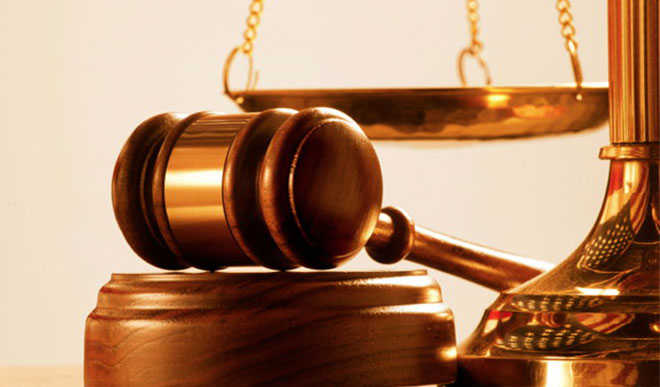Justice Nganjiwa : A/Court judgment gets more knocks
A non- profit making organisation- Access to Justice ( A2J) has picked holes in the decision of the Lagos Division of the Court of Appeal that says that anti-corruption agencies cannot arrest or prosecute any Judge for any offences committed in the discharge of their functions until the National Judicial Council ( NJC )has first […]


A non- profit making organisation- Access to Justice ( A2J) has picked holes in the decision of the Lagos Division of the Court of Appeal that says that anti-corruption agencies cannot arrest or prosecute any Judge for any offences committed in the discharge of their functions until the National Judicial Council ( NJC )has first “stripped” the Judges of their “judicial standing”.
Joseph Otteh, executive director, A2J in a swift reaction on Tuesday said that they do not agree with the opinion, adding that the ruling has grave implications as law enforcement agencies must not execute their responsibilities when it involves Judicial Officers until the NJC has, in essence, given them permission to do so".
According to A2J, the decision will have negative derivative consequences as well. "It would mean that, at the level of the States, no Magistate, Kadi, Area or Customary Court Judge can be investigated by law enforcement agencies until the State Judicial Service Commission has first “stripped” such a “judicial officer” of his or her “judicial standing”.
"The same with court employees who are under the disciplinary control of State Judicial Service Commissions. It would also mean that no member of the police force could be investigated or prosecuted for any crimes committed in the course of discharging their functions until the Police Service Commission has first stripped them of their “standing” as police officers. The same too for public officials whose agencies retain a disciplinary body with powers of oversight on their conduct".
"The constitutional basis or justification for this decision is, with respect to the Court of Appeal, contestable. Even the NJC itself, as we understand it, has not asserted an exclusive or preeminent right to discipline erring judicial officers first before anti corruption agencies can do their work. It is important to remember that not all sanctions of the NJC result in the stripping of the “judicial standing” of a Judge and Judges can be “warned” only, with nothing further recommended against them.
A2J said further that the NJC does not “remove” a judge from his or her office. "It can recommend the removal of Judges, but it is ultimately the head of an executive branch (the President or State Governor) that does the removing of the judicial officer.
"Until that is done, the NJC has adopted the practice of “suspending” that judicial officer. So what the Judgment may mean is that unless a Judge is effectively removed from office by the President or Governor, law enforcement agents cannot do their work. And where a Judge is not so removed, their work cannot also be done.
The Judgement, according to Otteh, will not advance efforts to reform the Judiciary and fight the vices that have persistently undermined it.
